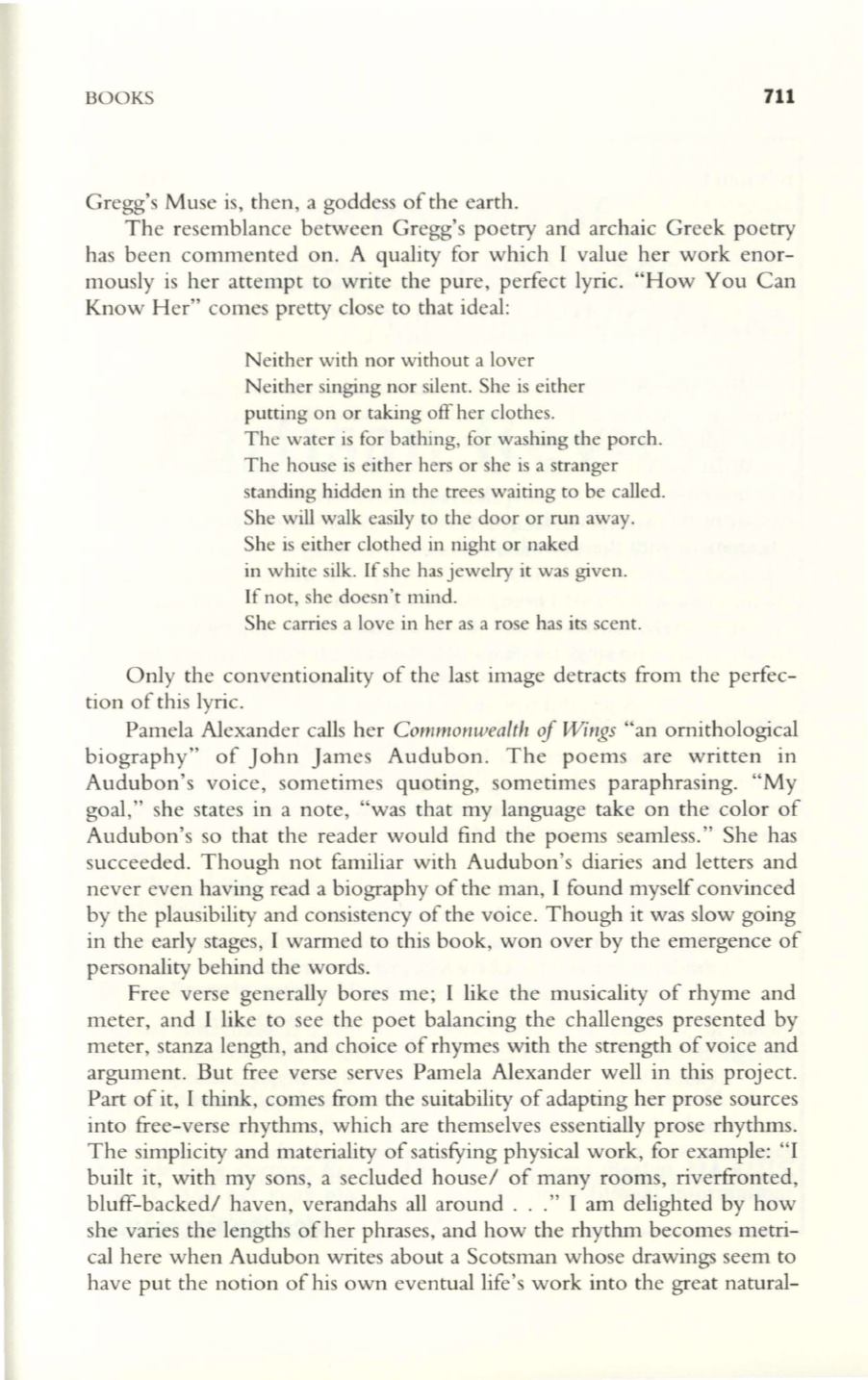
BOOKS
711
Gregg's Muse is, then, a goddess of the earth.
The resemblance between Gregg's poetry and archaic Greek poetry
has been commented on. A quality for which I value her work enor–
mously is her attempt to write the pure, perfect lyric. "How You Can
Know Her" comes pretty close to that ideal:
Neither with nor without a lover
Neither singing nor silent. She is either
putting on or taking off her clothes.
The water is for bathing, for washing the porch.
The hOllse is either hers or she is a stranger
standing hidden in the trees waiting to be called.
She
will
walk easily to the door or run away.
She is either clothed in night or naked
in white silk. If she has jewelry it was given.
If not, she doesn't mind.
She carries a love in her as a rose has its scent.
Only the conventionality of the last image detracts from the perfec–
tion of this lyric.
Pamela Alexander calls her
Commonwealth oj Wings
"an ornithological
biography" of John James Audubon. The poems are written in
Audubon's voice, sometimes quoting, sometimes paraphrasing. "My
goal," she states in a note, "was that my language take on the color of
Audubon's so that the reader would find the poems seamless." She has
succeeded. Though not familiar with Audubon's diaries and letters and
never even having read a biography of the man, I found myself convinced
by the plausibility and consistency of the voice. Though it was slow going
in the early stages, I warmed to this book, won over by the emergence of
personality behind the words.
Free verse generally bores me; I like the musicality of rhyme and
meter, and I like to see the poet balancing the challenges presented by
meter, stanza length, and choice of rhymes with the strength of voice and
argument. But free verse serves Pamela Alexander well in this project.
Part of it, I think, comes from the suitability of adapting her prose sources
into free-verse rhythms, which are themselves essentially prose rhythms.
The simplicity and materiality of satisfying physical work, for example: "I
built it, with my sons, a secluded house/ of many rooms, riverfronted,
bluff-backed/ haven, verandahs all around ... " I am delighted by how
she varies the lengths of her phrases, and how the rhythm becomes metri–
cal here when Audubon writes about a Scotsman whose drawings seem to
have put the notion of his own eventual life's work into the great natural-


